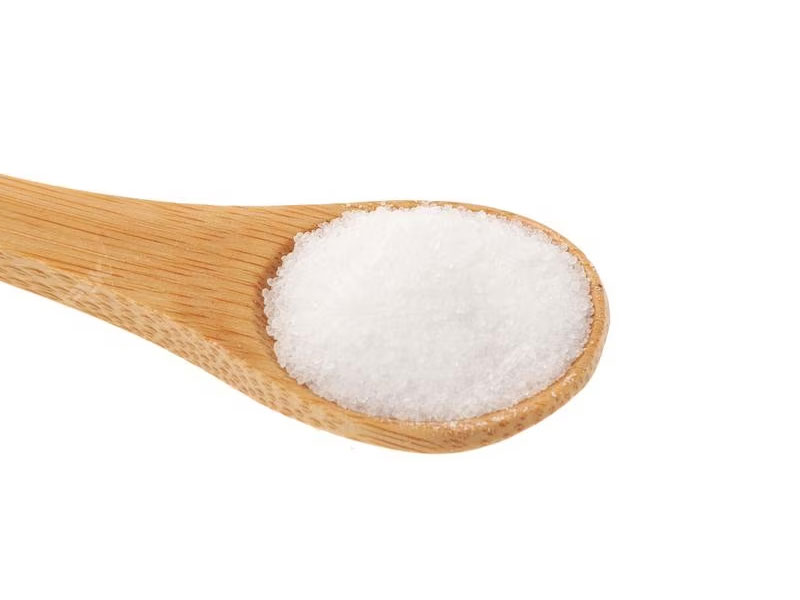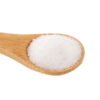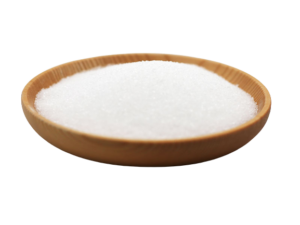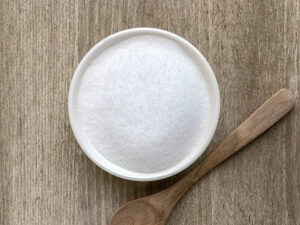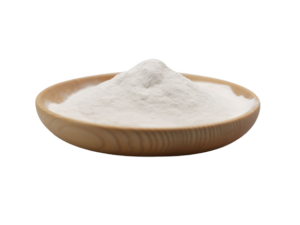What is Organic Isomaltulose?
Organic Isomaltulose is a natural, organic carbohydrate derived from sugar beets. It is a disaccharide composed of glucose and fructose, providing a slow and sustained release of energy. With a lower glycemic index compared to regular sugars, isomaltulose is an ideal sweetener for health-conscious individuals looking to reduce blood sugar spikes while enjoying a sweet taste. This product is organic certified, non-GMO, and suitable for a variety of applications in the food, beverage, and supplement industries.
Production Process:
- Sourcing: Sourced from 100% organic, non-GMO sugar beets, ensuring the highest quality raw material with no synthetic pesticides or chemicals.
- Hydrolysis: The sugar beets undergo enzymatic hydrolysis to extract and convert the sucrose into isomaltulose.
- Purification: The isomaltulose is then purified to remove any impurities, resulting in a high-purity, clean product.
- Crystallization: The purified isomaltulose undergoes crystallization to form a fine, white powder or syrup.
- Quality Control: Every batch is tested for consistency, organic certification, and compliance with quality standards before being packaged for distribution.
Key Features:
- Low Glycemic Index: Isomaltulose has a much lower glycemic index compared to regular sucrose, making it ideal for managing blood sugar levels and providing a steady, sustained energy release.
- Natural Sweetener: Derived from organic sugar beets, it offers a clean, natural alternative to traditional sugars.
- Prebiotic Properties: Isomaltulose has mild prebiotic effects, supporting gut health by promoting the growth of beneficial gut bacteria.
- Non-GMO & Organic: Made from 100% organic, non-GMO sugar beets, ensuring a product free from artificial additives, preservatives, or pesticides.
- Versatile & Stable: It has excellent solubility and stability in various food and beverage applications, making it an easy-to-use sweetener.
Specifications
| Parameter | Specification |
|---|---|
| Appearance | White crystalline powder |
| Odor | Odorless |
| Taste | Sweet |
| Solubility | Soluble in water, very slightly soluble in ethanol |
| Assay | Not less than 98% of isomaltulose on the dry basis |
| Moisture | Not more than 7.0% |
| pH | 4.5 – 6.5 (10% solution) |
| Ash | Not more than 0.05% |
| Heavy metals | Not more than 10 ppm |
| Lead | Not more than 1 ppm |
| Nickel | Not more than 2 ppm |
| Total plate count | Not more than 1000 cfu/g |
| Yeasts and molds | Not more than 100 cfu/g |
| Coliforms | Negative |
| Salmonella | Negative |
Applications:
- Food & Beverages:
Isomaltulose is an ideal sweetener for energy drinks, sports beverages, smoothies, and other beverages. It provides a natural sweetness and slow-release energy without causing rapid blood sugar spikes. - Confectionery & Bakery:
It can be used in cakes, cookies, chocolates, and other confectionery products, offering a natural sweetness while improving the texture and moisture retention of baked goods. - Dairy & Plant-Based Products:
Ideal for yogurt, ice cream, and plant-based beverages, where it acts as both a sweetener and a stabilizer. - Sports Nutrition & Supplements:
Used in protein powders, energy bars, meal replacements, and sports gels, isomaltulose provides a steady energy release, making it perfect for endurance athletes and active individuals. - Health & Wellness Products:
Suitable for sugar-free, low-carb, and diabetic-friendly products, as it does not cause blood sugar spikes and supports healthy metabolism.
Why Choose Our Organic Isomaltulose?
- Sustained Energy Release: Isomaltulose is metabolized slowly, providing long-lasting energy and helping to avoid the crashes associated with high-glycemic sugars.
- Low Glycemic Index: Ideal for people managing blood sugar, weight, or insulin sensitivity, isomaltulose offers a healthier alternative to high-glycemic sweeteners.
- Supports Gut Health: Acts as a mild prebiotic, feeding beneficial gut bacteria and supporting digestive health.
- Clean & Organic: Made from 100% organic, non-GMO sugar beets, ensuring a clean, natural product without harmful chemicals or additives.
- Versatile & Easy to Use: With excellent solubility and stability, isomaltulose is an easy-to-use sweetener that performs well in various food and beverage formulations.
Packing

